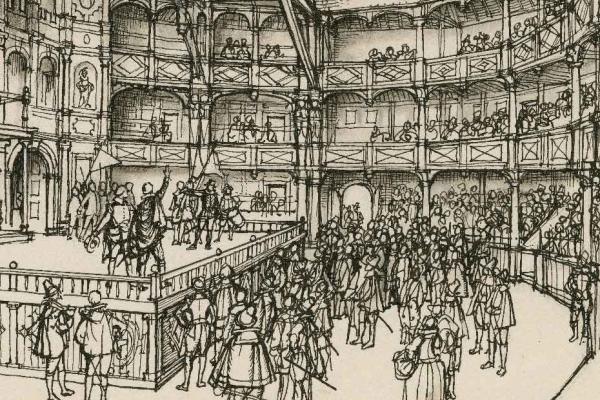
Please join us for this talk in our 2021-2022 Colloquium Series! This event is free and open to the public.
Registration link for Zoom attendance: https://osu.zoom.us/meeting/register/tJwtc-2gqTktGtEC5oAz1Pdlotmo7335unml
Registration link for in-person attendance: https://cmrs.osu.edu/events/2021-2022-in-person-rsvp-form
Speaker: Piers Brown, an associate professor of English at the Kenyon College. He is specialized in Renaissance poetry and poetics; theories of metaphor; book history; the history of science; and science fiction and fantasy.
Synopsis: My talk will lay out the background to a new project that arises from a long-term interest in the history of emotions and affect theory in Shakespeare. As my work has developed my focus has broadened from individual passions, to crowd affects, and eventually to an ecological understanding of affect. These connections arise in part out of a focus on the act of ‘moving,’ the process of inciting feeling that appears repeatedly in early modern discourse. This idea connects rhetorical persuasion to the passions, but also, via Aristotelian natural philosophy, links both to larger scale physiological and natural movements. In particular, I’m interested in a series of keywords by which Shakespeare identifies particular sorts of feelings that can be read across the boundaries between the human and non-human and between the living and the inert.
In this short talk, I’ll use Shakespeare’s Sonnet 94 as a way of opening up the complexity of this topic, suggesting the relational, multi-species character of affective ecologies. I’ll then talk briefly about The Winter’s Tale in order to show how the complexities of individual passionate feelings is connected to audience response. Focusing on ‘stirring,’ which, I’ll argue, functions as the movement of initiation, I’ll show how this phenomenon joins questions about how emotions begin, how the inanimate becomes animate, and helps us understand the frisson felt by spectators when they are confronted by the wonderful or marvelous events. Finally, in the question period, I’ll be happy to say something about the seminar on Early Modern Affective Ecologies at SAA this year, which I am co-leading with Allison Deutermann, as a way of seeing what other scholars are doing in the overlap between the history of emotions and eco-theory.
